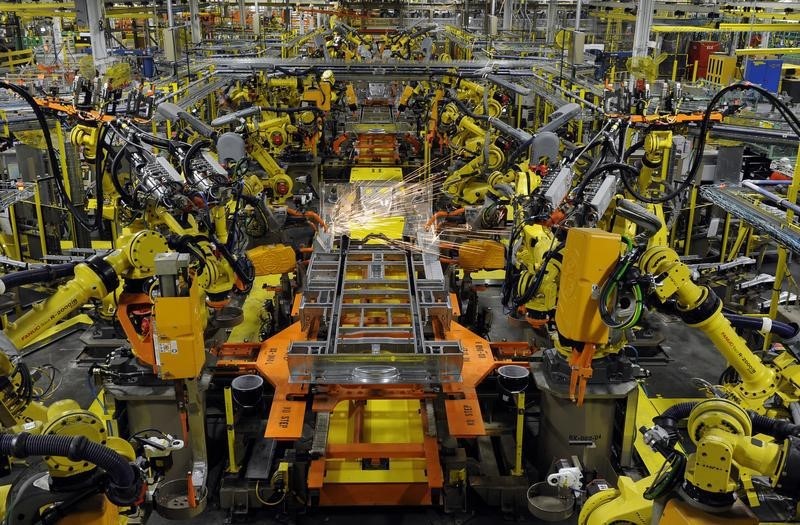WASHINGTON (Reuters) - New orders for key U.S.-made capital goods fell in August after four straight months of strong gains, while shipments barely rose, but that will probably not change expectations of solid growth in business spending on equipment in the third quarter.
The Commerce Department said on Thursday that orders for non-defense capital goods excluding aircraft, a closely watched proxy for business spending plans, dropped 0.5 percent last month, pulled down by a decline in demand for computers and electronic products.
There was also a decrease in motor vehicle orders. Data for July was revised slightly lower to show the so-called core capital goods orders increasing 1.5 percent instead of the previously reported 1.6 percent surge.
Economists polled by Reuters had forecast core capital goods orders rising 0.4 percent last month. Core capital goods orders increased 7.4 percent on a year-on-year basis.
Shipments of core capital goods edged up 0.1 percent last month after an upwardly revised 1.1 percent gain in July. Core capital goods shipments are used to calculate equipment spending in the government's gross domestic product measurement. They were previously reported to have increased 1.0 percent in July.
With business confidence at multi-year highs, in part buoyed by a $1.5 trillion tax cut package, August's surprise drop in core capital goods orders is likely to be temporary. There are, however, fears that an escalating trade war between the United States and China could hurt confidence and undercut both consumer and business spending.
Washington on Monday slapped tariffs on $200 billion worth of Chinese goods, with Beijing retaliating with duties on $60 billion worth of U.S. products. The U.S. and China had already imposed tariffs on $50 billion worth of each other's goods.
While manufacturers have expressed concerns about the tariffs, which are contributing to bottlenecks in the supply chain, there are so far no indications that the trade tensions are having a big impact on the economy.
The Federal Reserve raised interest rates on Wednesday for the third time this year. Chairman Jerome Powell told reporters that this was "a particularly bright moment" for the economy.
Business spending on equipment has risen since the fourth quarter of 2016. It is expected to underpin economic growth in the third quarter, even as trade is expected to weigh on output.
Overall orders for durable goods, items ranging from toasters to aircraft that are meant to last three years or more, surged 4.5 percent in August as demand for transportation equipment jumped 13.0 percent. That followed a 1.2 percent drop in durable goods orders in July.

Orders for motor vehicles and parts fell 1.0 percent last month. Orders for civilian aircraft soared 69.1 percent last month. Boeing (N:BA) reported on it website that it had received 99 aircraft orders in August, up from 25 in July.